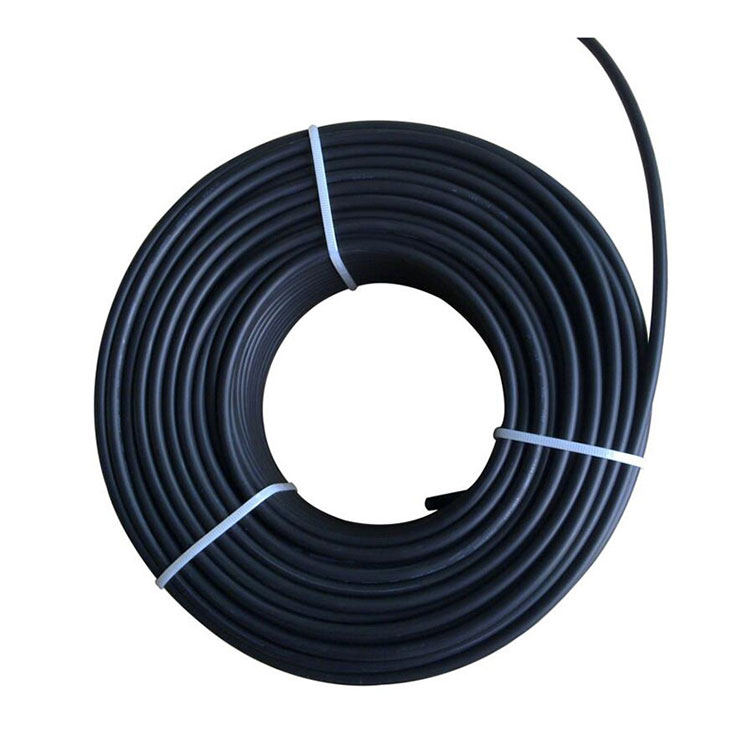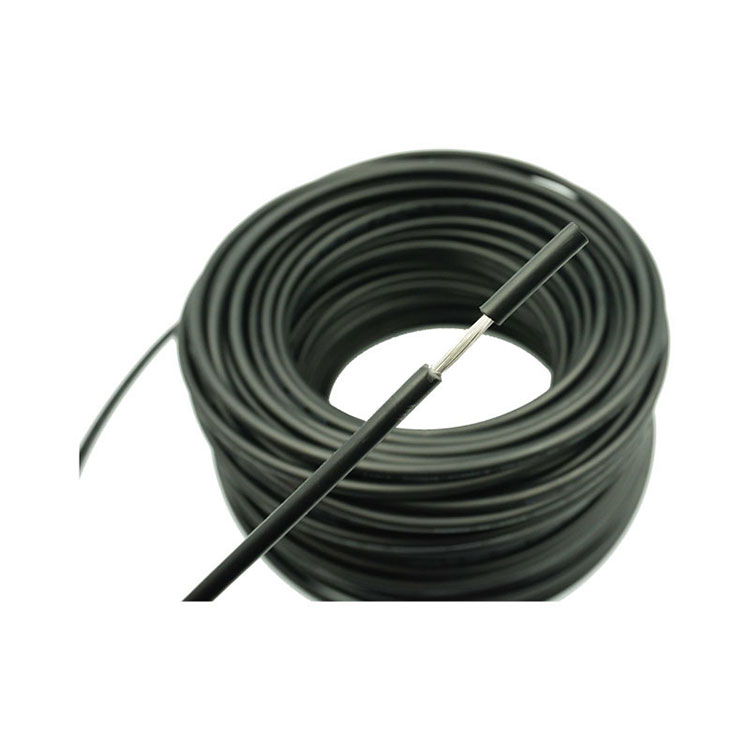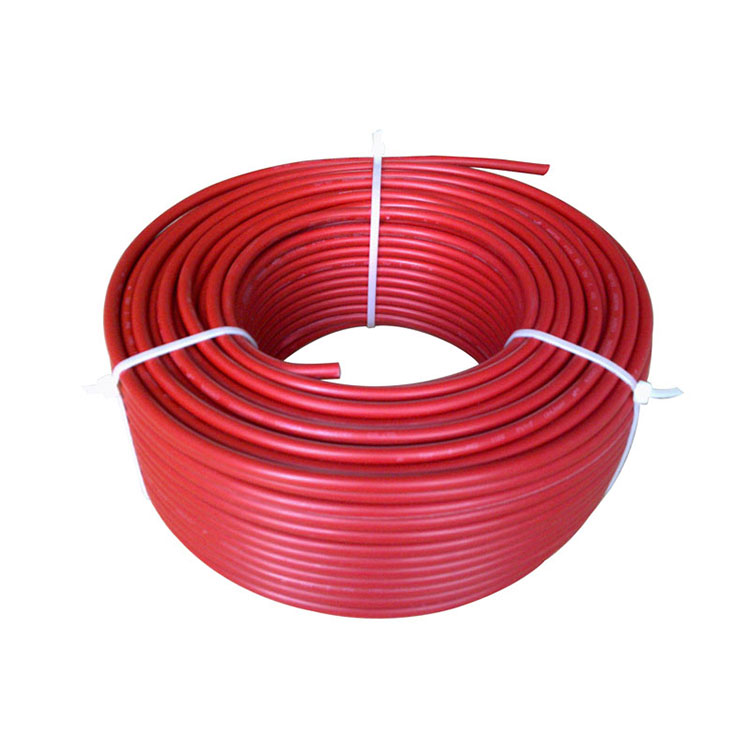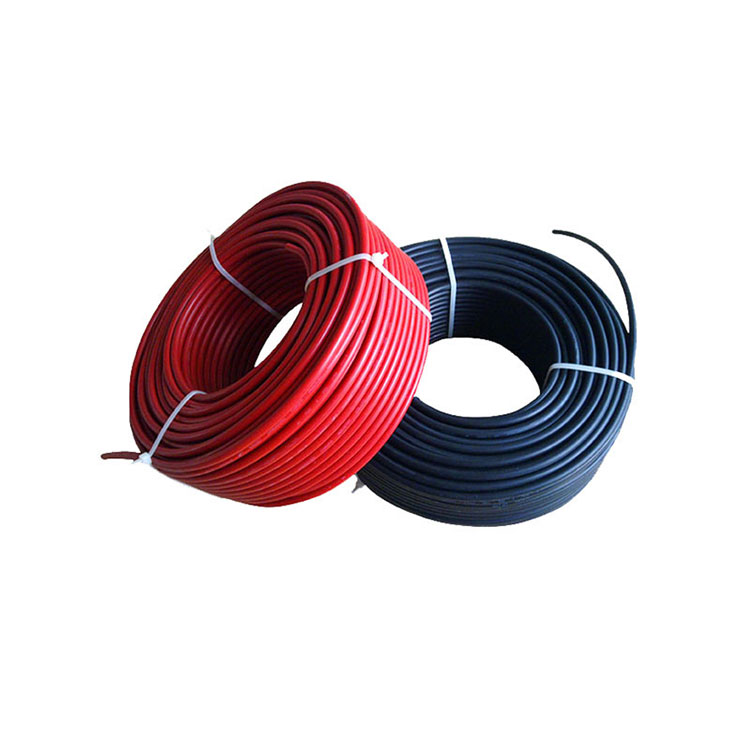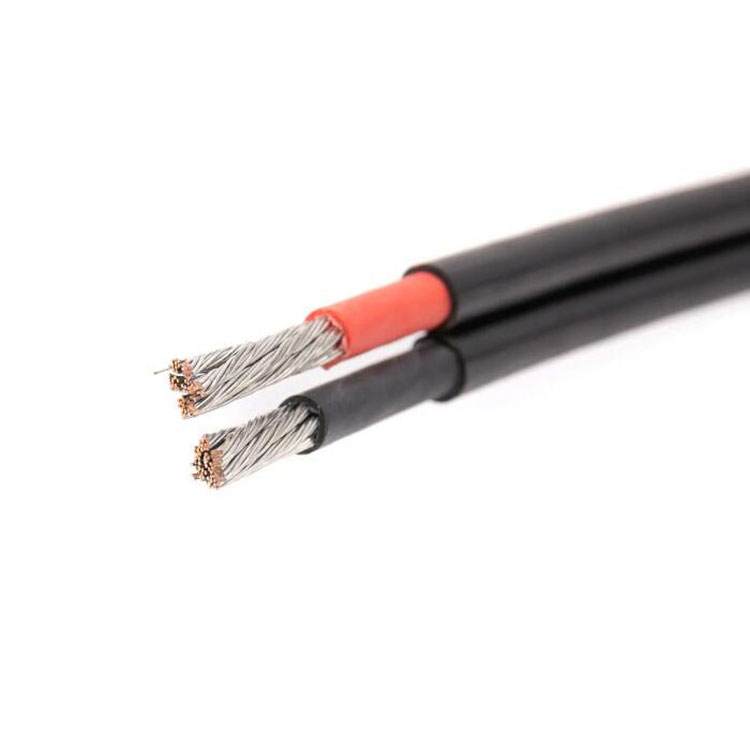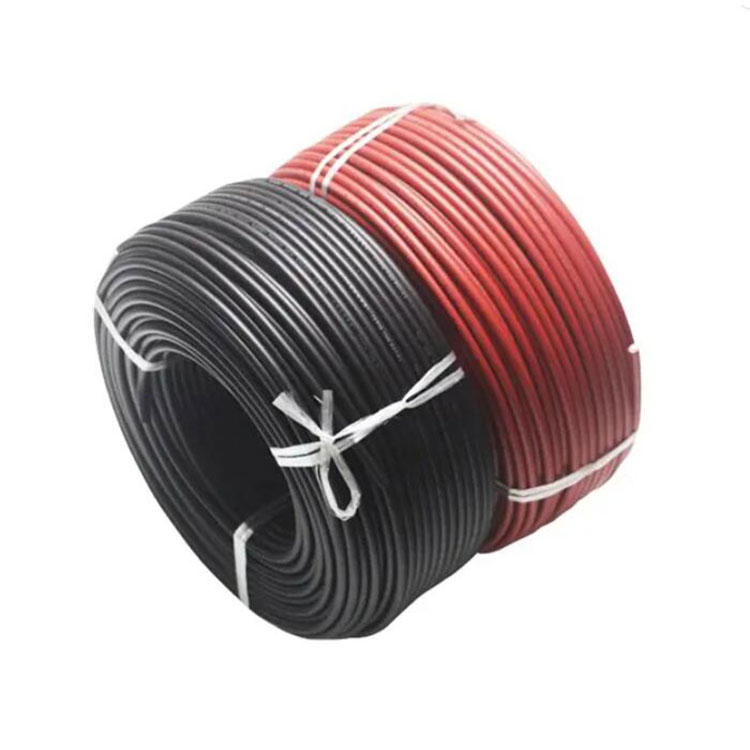Photovoltaic Cable
Conductor Material: Photovoltaic cables typically feature tinned copper conductors due to copper's excellent conductivity and resistance to corrosion. Tinning the copper conductors enhances their durability and performance, particularly in outdoor environments.
Insulation: The conductors of photovoltaic cables are insulated with materials such as XLPE (Cross-linked Polyethylene) or PVC (Polyvinyl Chloride). The insulation provides electrical protection, preventing short circuits and electrical leaks, and ensures the safety and reliability of the PV system.
UV Resistance: Photovoltaic cables are exposed to sunlight in outdoor installations. Therefore, the insulation of photovoltaic cables is designed to be UV resistant to withstand prolonged exposure to sunlight without degradation. UV-resistant insulation helps maintain the integrity and longevity of the cable over its operational lifespan.
Temperature Rating: Photovoltaic cables are designed to withstand a wide range of temperatures, including both high and low temperatures commonly encountered in solar installations. The insulation and sheathing materials used in these cables are selected to ensure optimal performance under varying temperature conditions.
Flexibility: Flexibility is a crucial characteristic of photovoltaic cables, allowing for easy installation and routing around obstacles or through conduits. Flexible cables are also less prone to damage from bending and twisting during installation.
Water and Moisture Resistance: PV installations are subject to exposure to moisture and environmental elements. Therefore, photovoltaic cables are designed to be water-resistant and capable of withstanding outdoor conditions without compromising performance or safety.
Compliance: Photovoltaic cables must comply with relevant industry standards and regulations, such as UL (Underwriters Laboratories) standards, TÜV (Technischer Überwachungsverein) standards, and NEC (National Electrical Code) requirements. Compliance ensures that the cables meet specific safety and performance criteria for use in PV systems.
Connector Compatibility: Photovoltaic cables often come with connectors that are compatible with standard PV system components, facilitating easy and secure connections between solar panels, inverters, and other devices.
- View as
Twin Core Photovoltaic Cable
As the professional manufacturer, we would like to provide you Twin Core Photovoltaic Cable. The Twin core photovoltaic cable is a reliable and efficient solution for connecting solar panels to the rest of the solar power system. Its design and construction are specifically tailored to meet the unique demands of solar installations, making it a crucial component in any solar energy system. The Twin core photovoltaic cable is also commonly used in 1500V DC solar energy systems.
Read MoreSend Inquiry1000v Solar Photovoltaic Cable
You can rest assured to buy 1000V Solar Photovoltaic Cable from our factory. The 1000V Solar Photovoltaic Cable offered by paidu is TUV approved, ensuring good conductivity. With a 1000V rating, this cable is designed to handle a maximum voltage of 1000 volts. This is crucial as solar panels can generate high voltages, especially in larger systems. The cable is engineered to safely carry and transmit this voltage without any issues.
Read MoreSend Inquiry

